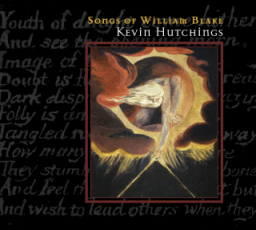May Update May 28th, 2008
Since my last blog post in April I have kept busy writing and playing music. For the most part, I’ve been working on the 12 songs that will comprise my new CD “Stanzas for Music” (named after Lord Byron’s poem of the same title, which will be included on the album).  Working with Sahra Featherstone, Jason Fowler, and Joe Phillips (all of whom perform on my Blake CD), I will be starting to record the new CD at the Canterbury Music Company’s studios in Toronto on July 1st. Unlike the Blake CD, which was recorded one track at a time, we will be recording all of the new CD’s bedtracks–including lead vocals, guitar, drums, and double bass–live, after which we’ll add harmony vocal and instrumental tracks. Our hope is that the initial live recording format will capture the chemistry and exuberance of a live show. Of the 12 songs currently lined up for the album, the lyrics for four songs were written by Lord Byron and the lyrics for two more were composed by his friend Percy Shelley. Two other songs’ lyrics were written by the Welsh poet Grahame Davies, and lyrics for the remaining four songs came from my own pen. (The musical settings for all twelve of the CD’s songs are my own.) The opportunity to work in a world-class recording studio like Canterbury is exciting indeed–I can hardly wait!
On the literary front, I’ve been researching and writing an essay on Blake’s Songs for inclusion in a book entitled Romantic Pleasure. This essay is a bit different from much of my academic writing, because it was largely inspired not by archival research but by thoughts that arose while I performed songs from my Blake CD. (Having committed all of the poems to memory in order to perform them live, I have internalized them in a way that has helped me to gain a new understanding of their possible meanings.) Focusing primarily on Blake’s poem “The Garden of Love,” while also considering other poems like “Ah! Sunflower” and the “Introduction” to Songs of Experience, my essay examines Blake’s celebration of sensual pleasure and his associated critique of sexual repression in late eighteenth-century England. For better or worse, Blake was an early champion of “free love,” and my essay will attempt to explain some of the implications of this aspect of his philosophy. I have promised the editors of Romantic Pleasure that I will complete my essay by August 15th. So I’d better get to work!


